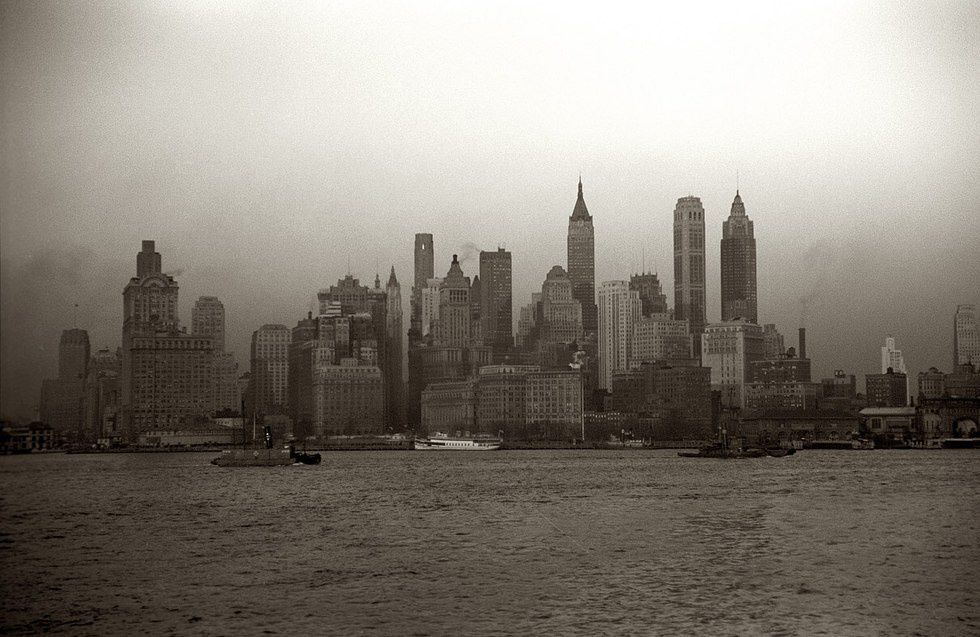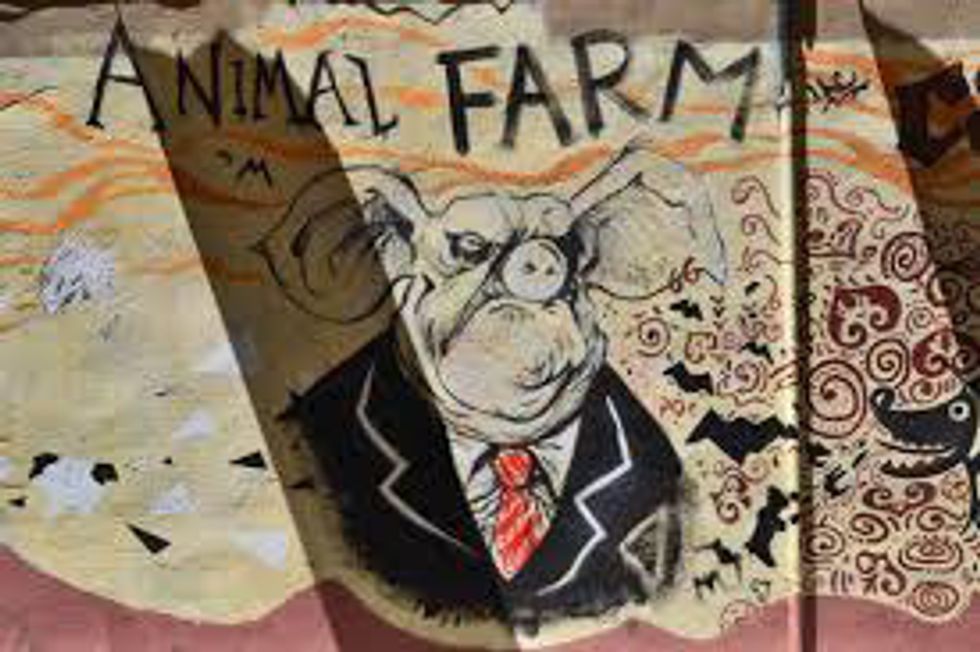"Do you know why books such as this are so important? Because they have quality. And what does the word quality mean? To me it means texture. This book has pores." -Ray Bradbury, "Fahrenheit 451"
It all started in my 9th grade English class. This is where I read my first piece of dystopian literature, where I learned the words "utopia" and "dystopia", and where I soon realized my love for reading. Dystopian works are a large part of why I wanted to major in literature.
Warning: This article contains spoilers.
"The Giver" by Lois Lowry (1993)
A few years before "The Giver" was turned into a movie, I was made to read the novel in my 9th grade English class. We would discuss the story every day and the teacher taught us how to notice unusual things about the story. For instance, how everyone had to take pills to keep from having normal human emotions and how the protagonist, Jonas, notices how an apple "changes," which means that he is seeing the color red for the first time. "Before my time, before the previous time, back and back and back. We relinquished color when we relinquished sunshine and did away with difference. We gained control of many things. But we had to let go of others." In this world, everything is gray. The "world" outside of their community is called Elsewhere, likely meaning that one has to die to escape.
I discussed this book with a friend and professor this week. I believe that Jonas may have actually escaped the community safely. My friend convinced me that Jonas was hallucinating and dying of hypothermia.
"Fahrenheit 451" by Ray Bradbury (1953)
The next year, I was introduced to "Fahrenheit 451," which had been recommended to me by my 8th grade English teacher. The title of the novel comes from the (fictional) idea that paper burns at 451 degrees Fahrenheit. So, why is Bradbury concerned with the temperature at which paper burns?
Well, in "Fahrenheit 451," books are incredibly dangerous. There aren't just banned books, all books are completely illegal to have due to so much controversial content. The protagonist, Guy Montag, is a firefighter, but because all houses are fireproof at this time, he breaks into suspicious houses to burn books. One woman chose to die with her library. Guy wondered why the books were so important to this woman and he begins an investigation by stealing one of the woman's books.
After beginning to read, he realizes that he is not like the people around him.
Guy's boss orders him to destroy his own house after being turned in by his wife. By the end, Guy finds a small group of individuals like him, each having memorized an important book in its entirety. They hope to one day create a world filled with books.
"1984" by George Orwell (1949)
Geoge Orwell is one of my favorite authors for his originality and innovation. "1984" is Orwell's cautionary tale against totalitarianism. This novel is where we've gotten phrases such as "Big Brother is watching you" and several Newspeak words, two of the most popular being "doublethink" and "thoughtcrime."
"1984" follows Winston Smith as he begins writing his most intimate (and illegal) thoughts about the government and his life. The totalitarian government has hidden cameras everywhere and can watch its citizens through their televisions, which can never turn off.
Winston rebels by reading and having a relationship. When he is caught, he is tortured and confesses everything that he knows. He is eventually broken by the government and set free. The novel ends with, "He loved Big Brother."
"Animal Farm" by George Orwell (1945)
Finally, we've reached my favorite piece of dystopian literature. I first read this novella during my senior year of high school and I fell completely in love with it.
The story begins on (you guessed it) a farm of animals. A very old boar meets with the rest of the animals to tell the of his youth when humans were known to be their enemies. After the death of the boar, the animals run the farmer, Mr. Jones, away. From here on out, the animals will live as "equal."
Under the rule of two pigs, Snowball and Napoleon, most of the animals on Animal Farm learn to read. Their Seven Commandments are written on the barn.
"Whatever goes upon two legs is an enemy."
"Whatever goes upon four legs, or has wings, is a friend."
"No animal shall wear clothes."
"No animal shall sleep in a bed."
"No animal shall drink alcohol."
"No animal shall kill any other animal.'
The first two Commandments are condensed into "four legs good, two legs bad." Over time, the rules start to change. No animal shall sleep in a bed with sheets. No animal shall drink alcohol to excess. No animal shall kill any other animal without reason. All animals are equal, but some animals are more equal than others.
By this time, Napoleon has forced Snowball off of the farm and has broken most all of the original rules.
By the end of the story, the other animals watch as the pigs and humans play cards inside of the house. The pigs and men are all wearing suits and the pigs, like the men, are walking on two feet. This novella ends with, "No question, now, what happened to the faces of the pigs. The creatures outside looked from pig to man, and from man to pig, and from pig to man again; but already it was impossible to say which was was."
I would like to thank my 9th and 12th grade English teachers in particular for bringing me to these amazing stories and this genre. These are four incredible stories that have impacted my life.






 StableDiffusion
StableDiffusion StableDiffusion
StableDiffusion StableDiffusion
StableDiffusion Photo by
Photo by  Photo by
Photo by  Photo by
Photo by 
 Photo by
Photo by  Photo by
Photo by  Photo by
Photo by  Photo by
Photo by  Photo by
Photo by 











